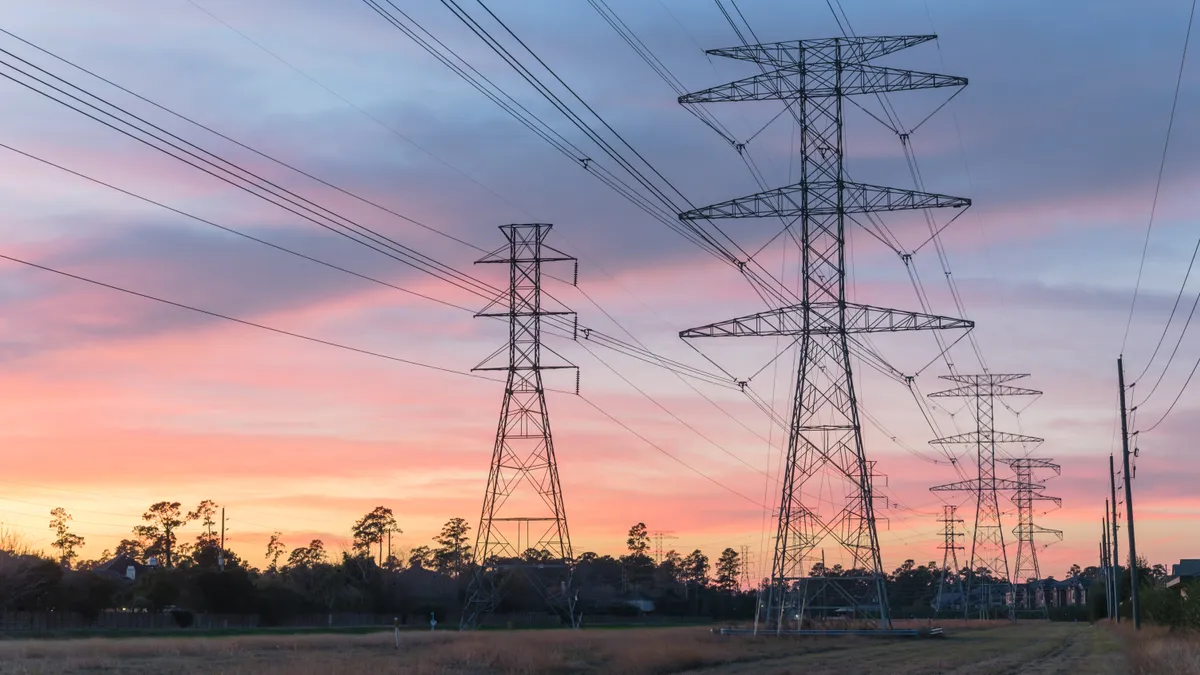Dive Brief:
- High-voltage transmission development is the “best low-risk and high-growth” way to profit from energy demand associated with artificial intelligence and industrialization in Texas, Sempra Chairman and CEO Jeff Martin said Wednesday during the company’s third-quarter earnings call. Sempra owns Oncor Electric Delivery, the largest distribution utility in the Lone Star State.
- There is a queue of more than 350 GW of generation and storage waiting to come online in Texas, Martin told analysts and journalists. “The critical success factor is the speed at which companies like Oncor can build, modernize and extend the high voltage transmission grid,” he said.
- Texas regulators in September approved an electric reliability plan for the Permian Basin region of the state, where the oil and gas industry, data centers and other sources of load are rapidly driving higher energy demand. The plan includes at least $13 billion in transmission projects to be completed through 2038, and Oncor officials say the company could be selected to build a “significant portion” of those projects.
Dive Insight:
With electrification, AI and industry all poised to drive electric demand higher, Oncor officials say they are well-positioned to expand the Texas grid and capitalize on the opportunity.
“Nationally, we face mounting challenges in the form of aging infrastructure, extreme weather events and increased demands being placed on finite dispatchable generation resources,” Martin said Wednesday. “These trends confirm a growing need for new infrastructure investments to improve the resiliency of our energy networks, while at the same time extending the grid to new and diverse sources of energy.”
By 2030, the United States will likely need to invest more than $600 billion in transmission and distribution, Martin said, adding that the projection “will likely prove conservative due to a series of sector tailwinds.”
“Demand from digital infrastructure is [an] important growth driver for our sector,” he said. “It also flags what I believe is an underappreciated investment thesis at Sempra,” he added, noting that Texas lawmakers have passed bills to shorten the permitting timeline for new transmission investments.
“Oncor expected to build more high voltage transmission this decade than any other company in America,” Martin said. “With economic expansion and higher expected demand growth, it's reasonable to believe that sector [earnings per share] growth will trend higher than historical norms.”
Oncor on Wednesday reported net income of $324 million for the third quarter of 2024, compared to $380 million in the year-ago period. The decrease was driven in part by higher interest and depreciation expenses associated with increases in invested capital and higher operation and maintenance expenses, the company said.
In the third quarter, the utility built, rebuilt or upgraded over 800 miles of transmission and distribution lines, according to Oncor CEO Allen Nye.
The Electric Reliability Council of Texas, which manages the grid for most of the state, expects demand growth in the Permian Basin to roughly quadruple to more than 26 GW in 2038, from about 6.6 GW last year, Nye said on Wednesday’s earnings call. “This represents an impressive compound annual growth of nearly 10%, proving once again that the region has some of the strongest growth prospects in the nation,” he said. ERCOT expects power demand in the state to grow by 80% through 2030, he added.
The Permian reliability plan approved by regulators includes about $4 billion in local projects that can commence immediately, and another $9 billion for projects that will depend on whether the Public Utility Commission of Texas decides to move ahead with 765-kV transmission lines, or to default to 345-kV lines. A decision will be made by May.
“We expect Oncor to capture a significant portion of the new capital investment opportunities given our current operations in the Permian Basin and ERCOT's preliminary recommendations,” Nye said. Most of the local projects need to be in service by 2030 to meet expected demand, he noted.
“We're not standing still, as we've already begun preparation for the transmission projects expected to be assigned to Oncor,” Nye said. “We'll be filing the necessary certificates of convenience and necessity for those projects beginning in early 2025, and will continue the necessary make-ready work throughout the year.”














